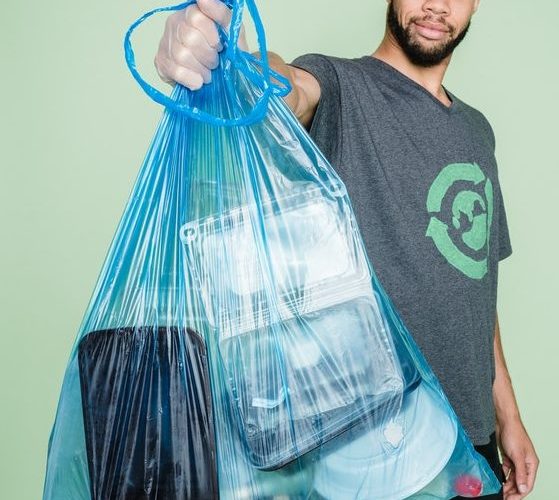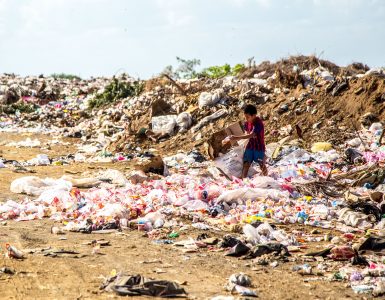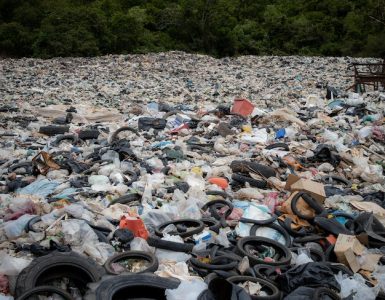India has banned the manufacture, import, stocking, distribution, sale, and use of identified single-use plastic items, which have low utility and high littering potential, all across the country from July 1, 2022.
As per the directive from the Indian Ministry of Environment, Forest and Climate Change, India has decided to do away with many single-use plastic items. In a notification that was issued on August 2021, the government prohibits the manufacture, import, stocking, distribution, sale, and use of all identified single-use plastic items, which have low utility and high littering potential with effect from July 1, 2022.
The list of banned items includes –
- Earbuds with Plastic Sticks
- Plastic Sticks for Balloons
- Plastic Flags
- Candy Sticks and Ice-cream Sticks
- Polystyrene (Thermocol) for decoration
- Plastic Plates, Cups, and Glasses
- Cutlery such as forks, spoons, knives, straws, trays
- Wrapping or Packing films around sweet boxes,
- Invitation cards
- Cigarette packets
- Plastic or PVC banners less than 100 microns
- Stirrers
Essential steps that are taken as part of the Single-Use Plastic ban:
- The Environment Ministry has conducted meetings with municipal commissioners and senior officials of the State Governments from Environment, Urban Development and Local Self Government Departments and State Pollution Control Boards (SPCBs) to appraise them of the ban. The Municipal Commissioners are expected to lead their teams with regard to efforts for enforcement within their jurisdiction. They were requested to help all stakeholders including traders, distributors, retailers as well as consumers to switch over to alternatives of the banned SUP items.
- Capacity-building workshops are being organized for MSME units to provide technical assistance for the manufacturing of alternatives to banned single-use plastic items with the involvement of CPCB/SPCBs/PCCs along with the Ministry of Small Micro and Medium Enterprises and Central Institute of Petrochemicals Engineering (CIPET) and their state centers.
- Provisions have also been made to support such enterprises in transitioning away from banned single-use plastics. National and state-level control rooms will be set up and special enforcement teams will be formed to check the illegal manufacture, import, stocking, distribution, sale, and use of banned single-use plastic items.
- States and Union Territories have been asked to set up border checkpoints to stop the interstate movement of any banned single-use plastic items.CPCB Grievance Redressal App has been launched to empower citizens to help curb the plastic menace.
- For wider public outreach, the PRAKRITI – mascot was also launched on 5th April.
India’s journey toward Plastic Pollution and Single-Use Plastic Ban
In the last few years, India has taken a number of steps with respect to waste management, cleanliness, and sanitation. In 2014, the Indian Prime Minister gave a clarion call to keep the country clean through the ‘Swacch Bharat Abhiyan (Clean India Campaign)’, which led to a series of initiatives to encourage waste segregation and sanitation.
India piloted a resolution on addressing single-use plastic products pollution in the 4th United Nations Environment Assembly held in 2019. It urged countries to recognize the urgent need to address plastic pollution. The adoption of this resolution at UNEA 4 was a significant step.
In the 5th session of the United Nations Environment Assembly in March 2022, India engaged constructively with all member states to develop a consensus on the resolution for driving global action on plastic pollution.
In August 2021, in the Plastic Waste Management Amendment Rules, 2021, Government also prohibited the manufacture, import, stocking, distribution, sale, and use of plastic carry bags having a thickness less than seventy-five microns with effect from 30th September 2021, and having a thickness less than the thickness of one hundred and twenty microns with effect from the 31st December 2022.
In February 2022, the Ministry of Environment, Forest, and Climate Change also notified the Guidelines on Extended Producers Responsibility on plastic packaging as Plastic Waste Management Amendment Rules, 2022. Extended Producer Responsibility (EPR) is the responsibility of a producer for the environmentally sound management of the product until the end of its life. The Guidelines will provide a framework to strengthen the circular economy of plastic packaging waste, promote the development of new alternatives to plastic packaging and provide the next steps for moving towards sustainable plastic packaging by businesses.
Single-Use Plastic Ban in India from 1st July 2022 is part of the country’s broader strategy towards cleanliness and the Swachh Bharath Mission which started in 2014.






Add comment